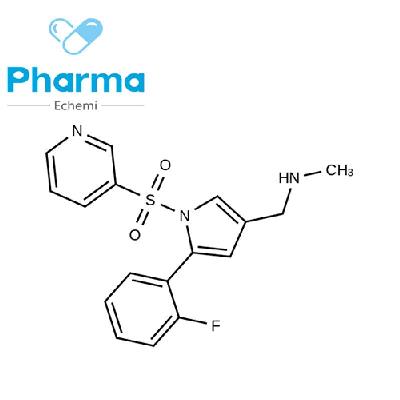-
Categories
-
Pharmaceutical Intermediates
-
Active Pharmaceutical Ingredients
-
Food Additives
- Industrial Coatings
- Agrochemicals
- Dyes and Pigments
- Surfactant
- Flavors and Fragrances
- Chemical Reagents
- Catalyst and Auxiliary
- Natural Products
- Inorganic Chemistry
-
Organic Chemistry
-
Biochemical Engineering
- Analytical Chemistry
-
Cosmetic Ingredient
- Water Treatment Chemical
-
Pharmaceutical Intermediates
Promotion
ECHEMI Mall
Wholesale
Weekly Price
Exhibition
News
-
Trade Service
In July 2022, the Pan American Crohn's Disease and Colitis Organization (PANCCO) updated its guidelines
for the treatment of ulcerative colitis in adults.
Ulcerative colitis (UC) is a chronic disease of unknown etiology with an intermittent clinical course characterized by
remission and relapse.
This article mainly provides evidence-based guidance and suggestions for the treatment of adult UC, hoping to have some reference help
for your clinical work.
Review: Key points of treatment of ulcerative colitis in adults (Part I)2022 PANCCO clinical practice guideline recommendation list
The second half of the guideline is organized as follows:
2022 PANCCO Clinical Practice Guidelines: Maintenance Remission Treatment in Adult UC Patients
Recommendation 21: Rectal 5-ASA is recommended for patients with UC to maintain remission
.
than enemas.
Recommendation 22: Oral 5-ASA is recommended for clinical and endoscopic remission
in patients with mild to moderate UC.
(Recommended level: strong; Quality of evidence: moderate)
Recommendation 23: Oral mesalazine or sulfasalazine is recommended for maintenance of remission
in patients with mild to moderate UC.
(Recommended level: strong; Quality of evidence: low)
Practice Points: No differencewas found in maintenance of remission with conventional or extended-release oral mesalazine at an equivalent dose in patients with mild to moderate UC.
The maintenance dose of 5-ASA in patients with mild to moderate UC should be based on clinical, biomarker (ideally fecal calprotectin), or endoscopic criteria
.
The minimum 5-ASA dose for maintaining clinical remission in mild to moderate UC is 1.
5 g/day
.
Recommendation 24: Thiopurines are recommended to maintain remission
in patients with corticosteroid-dependent or drug-resistant UC.
(Recommended level: conditional; Quality of evidence: low)
Practice points: The recommended dose of azathioprine is 2.0~2.
5 mg/kg/day
.
The recommended dose of 6-mercaptopurine is 1.
0~1.
5 mg/kg/day
.
Patients who relapse at a dose < 15 mg of prednisolone, or within 3 months of discontinuation, or who receive 2 or more courses of steroid therapy within 1 year, are considered steroid dependent or overdose<b20>.
Before using immunosuppressants, the presence of
infectious diseases must be excluded.
Patients treated with thiopurine drugs should have regular hematologic tests and hepatotoxicity monitoring
.
Recommendation 25: Probiotics are not recommended for maintenance of remission
in patients with UC.
(Recommended level: strong; Quality of evidence: very low)
Recommendation 26: Probiotics in combination with 5-ASA are not recommended for the maintenance of remission
in patients with UC.
(Recommended level: strong; The certainty of the evidence: very low)
Recommendation 27: Nutritional therapy is not recommended for maintenance of remission
in people with UC.
(Recommended level: conditional; Quality of evidence: very low)
Practice Points: Patients with UC should receive nutritional guidanceon concomitant medication.
Recommendation 28: Curcumin monotherapy is not recommended to maintain remission
in patients with UC.
(Recommended level: conditional; Quality of evidence: very low) Recommendation29: For patients with moderate to severe UC, biologic therapy with anti-TNF-α preparations (infliximab, adalimumab, and golimumab), anti-integrin-alpha4β7 (vedolizumab), or IL-12/23 inhibitors (ustekinumab)
is recommended to maintain remission
.
(Recommended level: strong; Quality of evidence: Low) Recommendation 30: Tofacitinib (a JAK inhibitor)
is recommended for remission
in patients with moderate to severe UC.
(Recommended level: strong; Quality of evidence: Low)
Recommendation 31: Recommendation 31: Recommendation of first choice for ciprofloxacin to induce remission in patients with acute pouchitis.
(Recommended level: conditional; The certainty of the evidence: very low)
Recommendation 32: When ciprofloxacin cannot be given, metronidazole is recommended to induce remission
in people with acute pouchitis.
(Recommended level: conditional; The certainty of the evidence: very low) Recommendation 33: Anti-TNF preparations (infliximab or adalimumab)
are recommended for induction and maintenance of remission
in patients with chronic pouchitis who do not respond to conventional care.
(Recommended level: conditional; Quality of evidence: very low)
Recommendation34: Victalizumab is recommended for induction and maintenance of remission in patients with chronic pouchitis refractory
to conventional care (infliximab or adalimumab).
(Recommended level: conditional; The certainty of the evidence: very low)
References: Juliao-Baños F, Grillo-Ardila C F, Alfaro I, et al.
Update of the PANCCO clinical practice guidelines for the treatment of ulcerative colitis in the adult population[J].
Revista de Gastroenterología de México (English Edition), 2022.







